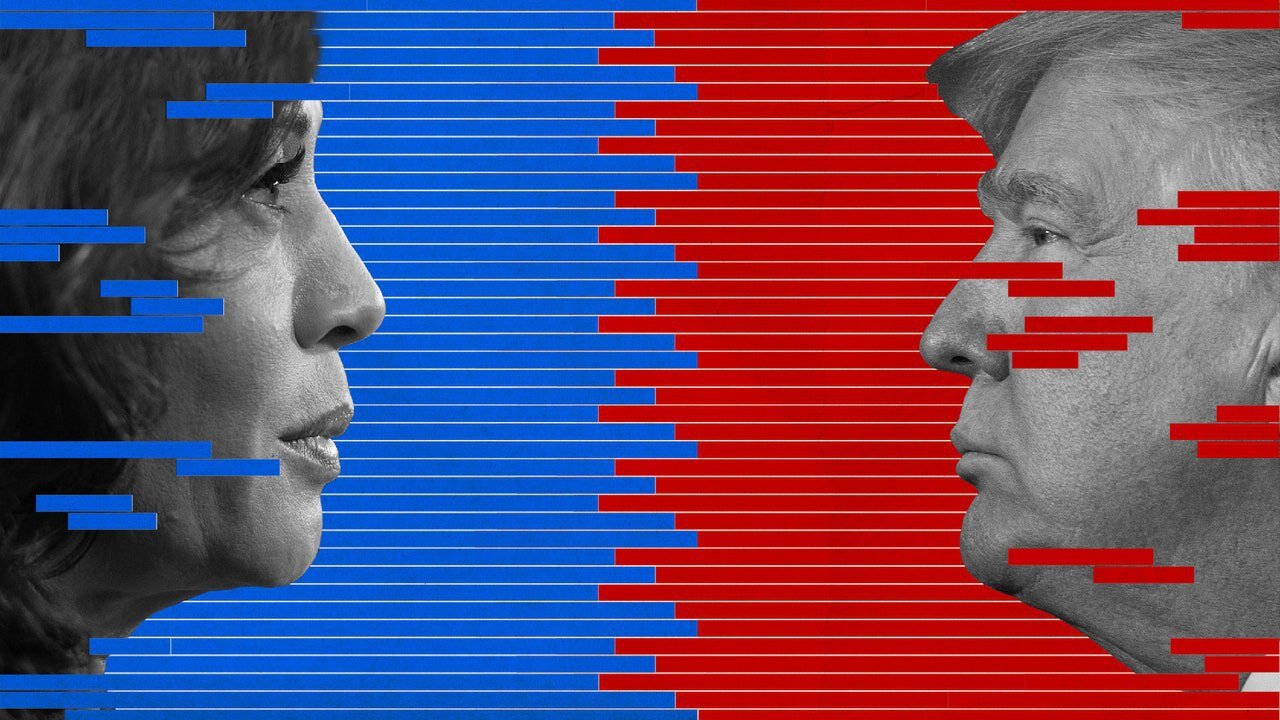HARUMP – Tehran Times
TEHRAN – As the world watches with hopes and fears to see if red or blue will occupy the White House, millions of Iranians seem less invested in the U.S. election outcome. For them, neither Kamala Harris nor Donald Trump could represent a change in U.S. hostility toward Iran. Harris and Trump have expressed starkly


TEHRAN – As the world watches with hopes and fears to see if red or blue will occupy the White House, millions of Iranians seem less invested in the U.S. election outcome. For them, neither Kamala Harris nor Donald Trump could represent a change in U.S. hostility toward Iran.
Harris and Trump have expressed starkly different views on a host of issues, including the war in Ukraine, immigration, and economic policies. But one thing the two seem to have a shared vision for is how West Asia should look in the future.
During his presidency from 2017 to 2021, Republican Trump implemented a series of aggressive actions against Iran, including withdrawing the United States from the Joint Comprehensive Plan of Action (JCPOA) and imposing the most severe sanctions Iran had faced in four decades. He also authorized the assassination of Iran’s top anti-terror commander, General Qassem Soleimani, drawing a response from Iran that marked the first direct attack on a U.S. base since World War II.
Following Trump’s presidency, many anticipated that Democrat Joe Biden would revive the JCPOA. However, contrary to expectations, the Biden administration ended up imposing hundreds of additional sanctions against Iran, as acknowledged by Secretary of State Antony Blinken. His Vice President running for president called Iran Washington’s “greatest adversary” during an October interview with an American TV channel.
When it comes to other policies in regard to West Asia, Trump and Harris once again sing from the same hymn ship. Harris has expressed “unwavering” commitment to the security of Israel. Last month, she said “I will always ensure Israel has the ability to defend itself against Iran” and what she called “Iran-backed terrorist militias”.
Trump has meanwhile called on the Biden administration to let Israel “finish the job” in Gaza, calling the incumbent president a “bad Palestinian” for pressuring Israel in its ongoing war against the enclave. It is not clear how Biden has pressured Israel in the past year, as he has gone above and beyond in the past year to make sure that the regime can continue killing women and children in large numbers in Gaza.
‘No fundamental differences’
In a recent interview with Iranian media, Amir Ali Abolfath, an expert on U.S. affairs, shared his insights on the implications of the upcoming U.S. presidential elections for the Israel-Palestine conflict and broader West Asian dynamics.
Abolfath emphasized that regardless of whether Harris or Trump secures victory, unwavering support for Israel is expected to continue. He noted that both leaders maintain a commitment to Israel’s military and security needs, which he described as “unquestionable.” There might only be some slight differences in how Democrats and Republicans view the infamous two-state solution.
“Democrats advocate for a two-state solution. The conservative faction does not oppose the two-state solution but believes that pressure should not be applied to Israel from the U.S. side. This means that if Israel determines that a two-state solution does not align with its security interests, the U.S. should refrain from intervening. Democrats do more to make the two-state solution happen, but not to the extent that’s needed.”
Regarding the issue of Iran’s role in West Asia, particularly in the context of U.S. foreign policy, he noted that both Trump and Harris believe sanctions must be maintained against Iran until Tehran agrees to a new deal with new conditions. “Both Democrats and Republicans more or less agree that the infamous Pompeo Plan should be implemented.”
The plan published in 2019 under then-Secretary of State Mike Pompeo, demands Iran to completely abandon its nuclear and missile program, and end its support for Resistance groups in the region.
“The plan is not something Iranians will ever agree to,” the expert added.
